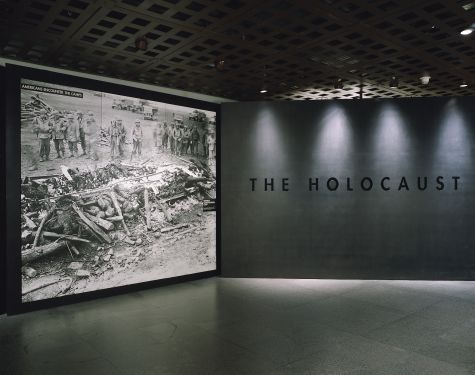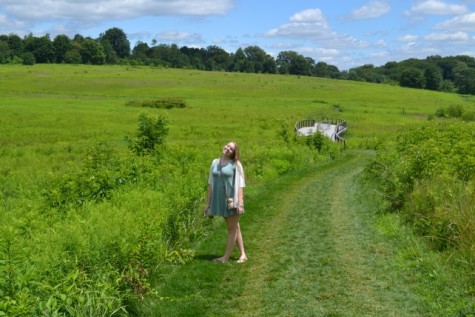Senior Class Pilgrimage Through the Holocaust
January 10, 2016
On Thursday, January 8th, the senior class took a pilgrimage through the United States Holocaust Memorial Museum in Washington, DC. The girls were each given an identification card, each of which had the name and the story of one Holocaust victim. They were told to reach their story, but not to read the last page until they completed their pilgrimage through the exhibits, because the last page indicated the fate of their person.
The museum is a self-guided tour, and people can be affected in different capacities. Senior Kristyn Lundquist said, “Walking through the museum made me feel connected to the victims of the Holocaust. It gave me a better understanding of the things they had to endure and put everything into perspective. Walking though the train car that was an artifact from the concentration camps, and being pushed into the elevator as close together as the victims were forced to be, I identified with them. That is something I will always take with me from this museum.”
I had a similar experience. As I walked through the museum, I saw actual artifacts from Auschwitz and other concentration camps, summaries written on plaques, and videos containing live footage from the events. However, the one thing that caught my eye was a quote from a Russian poet who was also a victim. Written by Yevgeny Yevtushenko, the quote read, “The wild grasses rustle over Babi Yar, the trees look ominous, like judges. Here all things scream silently, and, baring my head, slowly I feel myself turning gray. And I myself am one massive, soundless scream above the thousand thousand buried here.” This quote put into perspective the internal emotions of the victims, as they were feeling alone and helpless. The words of this survivor were incredibly powerful and evoked just as many images for me as the videos on the monitors did.
Even after all of these years, and even though the US was not involved in the actual genocide, Americans continue to feel remorse and respect for the victims of the Holocaust. The United States Holocaust Memorial Museum preserves the lives and the struggles of the victim within, helping Americans connect with the victims and apply their lessons of bravery, strength, and positivity to personal struggles of their own.


